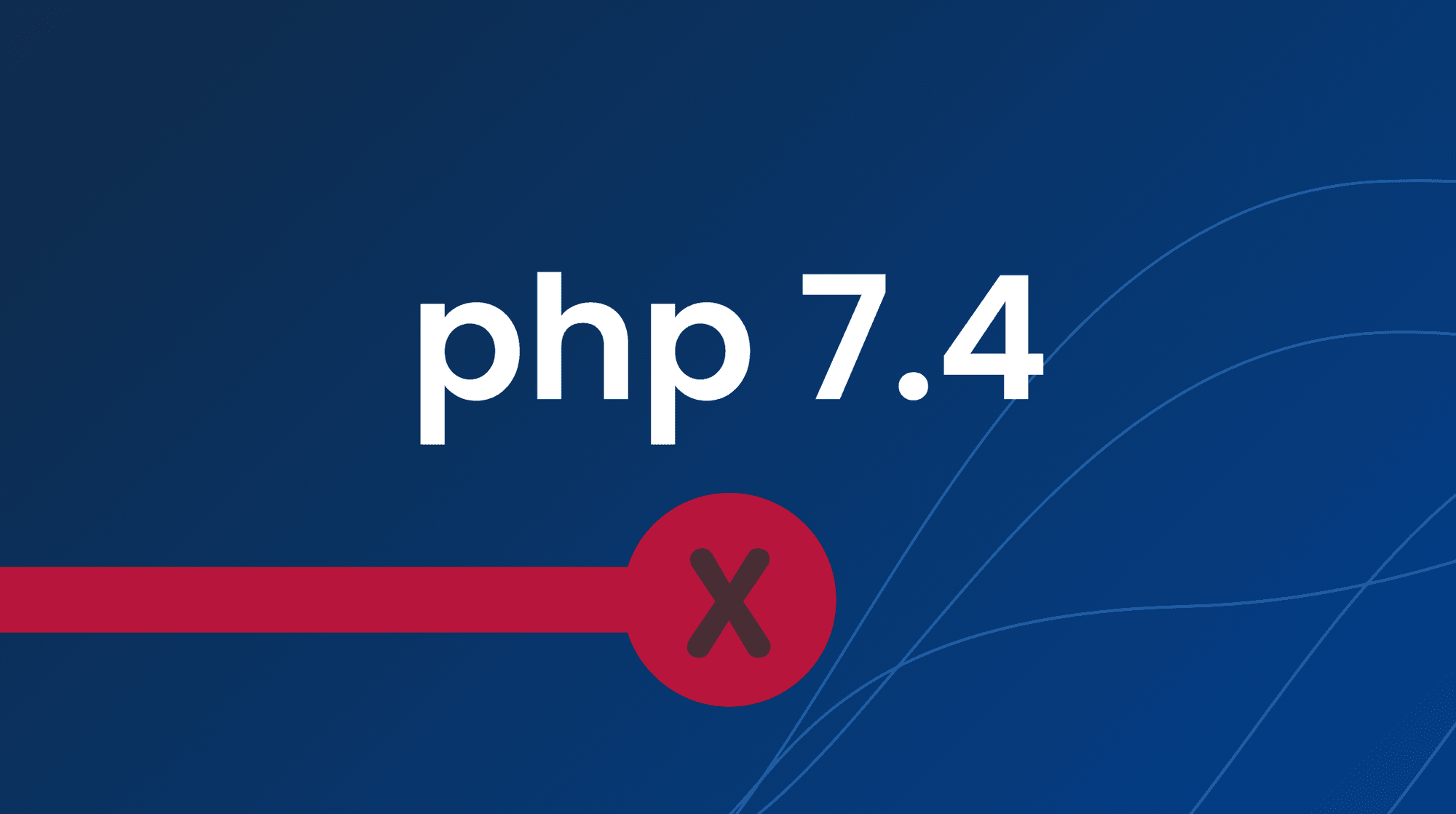在当今的数字环境中,拥有一个网站不足以确保在线成功。数以百万计的网站争相吸引人们的注意,您如何确保您的网站脱颖而出?这就是搜索引擎优化 (SEO) 发挥作用的地方。
SEO 是优化网站以提高其在搜索引擎结果中的可见度的做法。通过实施有效的 SEO 策略,您可以吸引更多自然流量,提高在线可见度,并最终推动更多转化。
WordPress 是一种流行的内容管理系统,它提供了一系列 SEO 功能和插件,可以显著提高您网站的 SEO 性能。在本文中,我们将探讨各种 WordPress SEO 技巧和窍门,这些技巧和窍门可以帮助您提高网站的知名度并吸引更多自然流量。
因此,无论您是经验丰富的 WordPress 用户还是新手,请继续阅读以了解如何通过有效的 SEO 技术优化您的网站并提高其在线可见性。
了解SEO的重要性
🔍 在当今的数字时代,拥有强大的在线影响力对于企业蓬勃发展至关重要。而实现这一目标的关键要素之一就是搜索引擎优化 (SEO)。SEO 可帮助网站在搜索引擎结果页面 (SERP) 中排名更高,从而让目标受众更容易看到它们。但为什么 SEO 如此重要?让我们来探讨一些主要原因:
关键词研究
🔍 SEO 的基本方面之一是关键字研究。通过识别目标受众正在搜索的关键字和短语,您可以相应地优化网站的内容。以下是关键字研究对于改善网站 SEO 至关重要的原因:
- 它可以帮助您了解您的受众:通过分析他们使用的关键词,您可以深入了解他们的需求、偏好和痛点。
- 它可以提高您网站的知名度:通过在您的内容中加入相关关键词,您可以增加您的网站出现在搜索结果中的机会。
- 它可以带来目标流量:通过定位特定的关键词,您可以吸引那些正在积极搜索您提供的产品或服务的用户。
🔗 要了解有关关键字研究在 SEO 中的重要性的更多信息,请查看此内容 WordPress 中的 SEO 基础知识 文章。
网站速度和性能
💨 在当今快节奏的世界里,用户对加载缓慢的网站几乎没有耐心。如果您的网站加载时间过长,访问者很可能会放弃它,从而影响您的跳出率和整体用户体验。以下是优化网站速度和性能对 SEO 很重要的原因:
- 它改善了用户体验:快速加载的网站可以创造积极的用户体验,从而延长停留时间并降低跳出率。
- 它提高了搜索引擎排名:搜索引擎优先考虑提供无缝用户体验(包括快速加载时间)的网站。
- 它增加了自然流量:用户更有可能点击加载速度快的网站,从而带来更高的自然流量。
元标签的使用
🏷️ 元标记是向搜索引擎提供有关网页信息的代码片段。通过使用描述性和富含关键字的元标记,您可以提高网站在搜索引擎结果中的可见性。以下是元标记对于改善网站 SEO 的重要性:
- 它们提供了简洁的摘要:元标记向搜索引擎和用户提供了网页内容的简要概述,从而增加了其在搜索结果中的相关性。
- 它们吸引点击:精心制作的元标记可以吸引用户在您的网站出现在搜索结果中时点击您的网站,从而提高您的点击率。
- 它们针对特定的关键词进行优化:通过在元标记中包含相关关键词,您可以提高网站在这些关键词中排名更高的机会。
定期更新网站内容
🔄 内容陈旧、停滞不前的网站会对您的 SEO 工作产生负面影响。搜索引擎会优先考虑定期更新新鲜且有价值内容的网站。以下是定期更新网站内容对于提高其在线可见度的重要性:
- 它表示相关性:搜索引擎更喜欢向用户提供最新和相关信息的网站。
- 它鼓励重复访问:通过不断提供新内容,您可以为用户返回您的网站创造理由,从而提高参与度和保留率。
- 它吸引反向链接:新鲜的内容更有可能吸引来自其他网站的反向链接,这可以提高您网站的权威性和排名。
了解 SEO 插件
🔌 优化网站内容和其他 SEO 因素的最有效方法之一是使用 SEO 插件。这些插件简化了 SEO 流程,并提供了有价值的见解和建议。WordPress 的一个流行 SEO 插件是 Yoast SEO。以下是使用 SEO 插件对优化网站有益的原因:
- 它可以帮助您优化内容:SEO插件提供页面优化建议,例如优化元标记、提高可读性和使用适当的关键字。
- 它会分析您的页面:这些插件会分析您的内容并提供有关其 SEO 性能的见解,从而让您进行数据驱动的改进。
- 它简化了技术优化:SEO 插件协助 SEO 的技术方面,例如生成 XML 站点地图、优化 URL 和改进站点结构。
⚡️ 了解 SEO 的重要性并实施有效的策略可以显著提高您网站的知名度、自然流量和整体成功率。因此,花点时间投资 SEO,让您的在线形象蓬勃发展!
WordPress 的顶级 SEO 插件
在当今的数字时代,拥有强大的在线影响力对于任何企业或网站都至关重要。实现这一目标的最佳方法之一是针对搜索引擎优化您的网站。WordPress 是最受欢迎的内容管理系统之一,它提供了各种 SEO 插件,可帮助您提高网站在搜索引擎结果页面 (SERP) 上的可见性和排名。
在这里,我们将探讨一些可以对您网站的 SEO 工作产生重大影响的 WordPress 顶级 SEO 插件:
Yoast搜索引擎优化
Yoast搜索引擎优化 无疑是最受认可和广泛使用的 WordPress SEO 插件之一。这款插件深受数百万用户的信赖,提供了一套全面的工具来优化您的页面 SEO。
Yoast SEO 的一些主要功能包括:
- 关键词优化: Yoast SEO 通过提供有关关键字使用的宝贵见解和建议,帮助您针对特定关键字优化内容。
- 可读性分析: 该插件提供了提高内容可读性的建议,确保搜索引擎和访问者都可以轻松理解。
- XML 站点地图生成: Yoast SEO 自动生成 XML 站点地图,以帮助搜索引擎更有效地抓取和索引您的网站。
- 规范 URL 设置: 使用该插件,您可以轻松设置规范 URL 以避免重复内容问题。
了解有关 Yoast SEO 的更多信息: https://managed-wp.com/seo/top-3-seo-plugins-for-wordpress-in-2022-you-must-use-them-seopress-yoast-rank-math/
一体化SEO包
WordPress 用户中另一个受欢迎的选择是 一体化SEO包 插件。此插件提供用户友好的界面和广泛的功能,以优化您网站的 SEO 性能。
以下是 All in One SEO Pack 的一些显著特点:
- XML站点地图创建: 该插件会自动生成 XML 站点地图,让搜索引擎更容易发现和索引您网站的内容。
- 标题和元描述优化: 通过此插件,您可以轻松自定义网页的标题标签和元描述,确保它们包含相关的关键字和引人注目的信息。
- Open Graph 元标记: All in One SEO Pack 允许您添加 Open Graph 元标记,这对于优化您网站的社交媒体共享外观至关重要。
- 高级规范 URL: 此功能可帮助您为网页设置规范 URL,从而防止出现重复内容问题。
排名数学
排名数学 是 WordPress SEO 插件领域的一个相对较新的参与者,但由于其广泛的功能集和易用性,它迅速获得了普及。
Rank Math插件的主要功能包括:
- 高级SEO分析: Rank Math 为每个页面或帖子提供深入的 SEO 分析,并提出可行的建议以改善您的 SEO 工作。
- 丰富的摘要支持: 该插件提供对丰富摘要的内置支持,可让您增强网站搜索结果的外观并提高点击率。
- 404错误监控: Rank Math 监控 404 错误页面并提供修复建议,以确保无缝的用户体验。
- 与 Google Search Console 集成: 此功能使您能够直接在 WordPress 仪表板中查看来自 Google Search Console 帐户的重要 SEO 数据。
SEO新闻
SEO新闻 是一个全面的 WordPress SEO 插件,提供强大的功能来优化您的网站在搜索引擎上的可见性。
SEOPress 的一些显著特点包括:
- XML 和 HTML 站点地图生成: SEOPress 自动生成 XML 和 HTML 站点地图,使搜索引擎更轻松地导航和索引您的网站。
- 内容分析与优化: 该插件提供了详细的内容分析,突出显示了可以改进的领域,以增强您的 SEO 效果。
- Google 知识图谱集成: SEOPress 允许您轻松地将您的网站连接到 Google 的知识图谱,从而提高您的网站在搜索结果中的出现率。
- 301 重定向: 该插件提供了一个简单的界面来设置 301 重定向,帮助您管理 URL 更改并避免断开的链接。
通过利用这些 SEO 插件的强大功能,您可以将 WordPress 网站的 SEO 游戏提升到一个新的水平。无论您选择 Yoast SEO、All in One SEO Pack、Rank Math 还是 SEOPress,每个插件都提供独特的功能和优势,以提高您网站的知名度和搜索引擎排名。那么,还等什么?立即开始优化您的 WordPress 网站,让您的在线形象飙升!
移动友好型网站对 SEO 的重要性
在当今的数字时代,智能手机已成为我们生活中不可或缺的一部分,拥有一个适合移动设备的网站不再是一种奢侈,而是一种必需品。随着越来越多的人通过移动设备访问互联网,企业需要确保其网站针对移动设备进行优化,以在网络空间中保持竞争力。但为什么拥有一个适合移动设备的网站对 SEO 如此重要?让我们深入研究一下。
📱 用户体验至关重要
在 SEO 方面,用户体验起着重要作用。Google 优先考虑为访问者提供无缝且用户友好体验的网站。如果您的网站不适合移动设备,则会导致小屏幕上的用户体验不佳,从而导致跳出率增加和用户在您网站上停留时间减少。这反过来会对您的搜索引擎排名产生负面影响。
🌐 谷歌的移动优先索引
搜索引擎巨头谷歌已将重点转向移动优先索引。简而言之,这意味着谷歌现在会先抓取并索引您网站的移动版本,然后再抓取桌面版本。如果您的网站不适合移动设备,谷歌可能不会将其排名在搜索结果中那么高,因为它在排名算法中优先考虑适合移动设备的网站。
✅ 响应式设计是关键
确保您的网站适合移动设备的最有效方法之一是使用响应式设计。响应式设计允许您的网站根据所用设备的屏幕尺寸调整其布局和内容。响应式和移动友好的网站不仅可以提供流畅的用户体验,还可以确保您的网站在所有设备上都看起来很棒。
💡 适合移动设备的 WordPress 主题
如果您使用 WordPress 作为内容管理系统,那么您很幸运。有许多响应式且适合移动设备的 WordPress 主题可供选择,它们可以帮助您创建在任何设备上都看起来很棒的网站。这些主题旨在自动调整网站的布局和元素以适应不同的屏幕尺寸,从而确保为您的移动用户提供一致且优化的体验。
📈 移动流量正在上升
移动使用率的上升趋势进一步强调了移动友好型网站对 SEO 的重要性。根据 Statista 的数据,2021 年第一季度,移动流量约占全球网站流量的 54%。这意味着您的目标受众中有相当一部分是通过移动设备访问互联网的。为了有效地接触和吸引这些用户,拥有一个移动友好型网站至关重要。
总之,拥有一个适合移动设备的网站不仅对于提供积极的用户体验至关重要,而且对于提高您的搜索引擎排名也至关重要。随着 Google 的移动优先索引和移动流量的增加,企业不能忽视移动优化的重要性。确保您的网站响应迅速且适合移动设备应该是在竞争激烈的在线环境中保持领先地位的首要任务。
通过网站结构增强 WordPress SEO
在针对搜索引擎优化 WordPress 网站时,网站结构起着至关重要的作用。结构良好的网站不仅可以改善用户体验,还可以通过帮助搜索引擎有效地抓取、索引和理解您的内容来增强 SEO。在本文中,我们将探讨通过网站结构增强 WordPress SEO 的三个关键策略:创建站点地图、改进内部链接结构和实施架构标记。
创建站点地图
站点地图是一个列出您网站上所有页面的文件,可让搜索引擎更轻松地发现和了解其结构。通过为您的 WordPress 网站创建站点地图,您可以为搜索引擎提供路线图,以便更有效地导航和访问您的内容。
以下是拥有站点地图的一些主要好处:
- 提高可抓取性:站点地图可帮助搜索引擎查找并索引您网站上的所有重要页面。如果您的网站很大且包含许多页面,或者某些页面无法通过网站导航轻松访问,那么站点地图就非常有用。
- 更快的索引:有了站点地图,搜索引擎就可以快速索引您网站上的任何新内容或更新内容。这可确保您的最新帖子或页面及时包含在搜索引擎结果中。
- 更好的可见性:结构良好的站点地图可以为搜索引擎提供有关每个页面的相关信息,从而提高您网站的可见性。这可以提高排名并带来更多自然流量。
要为您的 WordPress 网站创建站点地图,您可以使用 Yoast SEO 或 Google XML Sitemaps 等插件。每当您在网站上添加或修改内容时,这些插件都会自动生成和更新您的站点地图。
改善内部链接结构
内部链接是指将超链接从您网站的一个页面添加到另一个页面的做法。如果策略性地进行内部链接,可以通过以下方式显著改善您的 WordPress 网站的 SEO:
- 协助网站导航:内部链接使访问者更容易浏览您的网站并找到相关内容。这可以带来更好的用户体验,并帮助搜索引擎了解您网站的结构和层次结构。
- 传播链接权益:通过从高权重页面链接到您网站上的其他页面,您可以分配链接权益并提高链接页面的排名。这被称为“链接汁”,可以提高您的内容在搜索引擎结果中的可见性。
- 确保指数化:内部链接是搜索引擎机器人发现和抓取您网站上不同页面的途径。通过战略性地将内容相互链接,您可以确保所有页面都被搜索引擎编入索引。
在改进内部链接结构时,请牢记以下最佳做法:
- 使用描述性锚文本:不要使用“点击此处”或“阅读更多”等通用术语,而是使用准确反映链接页面内容的描述性锚文本。这有助于搜索引擎了解链接页面的相关性和上下文。
- 链接到相关页面:内部链接应与上下文相关,并为用户的浏览体验增加价值。链接到提供其他信息或回答相关问题的页面,以增强用户浏览您网站的体验。
实现 Schema 标记
架构标记是一种结构化数据形式,可帮助搜索引擎更好地理解您的网站内容。通过在 WordPress 网站上实施架构标记,您可以为搜索引擎提供有关内容的更多背景信息和详细信息,这些内容可用于增强您的内容在搜索引擎结果中的显示方式。
以下是实施架构标记的一些好处:
- 更丰富的搜索结果:Schema 标记可让搜索引擎显示更具信息量且更具视觉吸引力的搜索结果。例如,您可以直接在搜索结果中显示星级、产品价格和其他相关详细信息,让您的列表脱颖而出。
- 提高点击率:通过增强的搜索结果,您的列表更有可能吸引注意力并提高点击率。用户更倾向于点击提供更详细信息且视觉上有吸引力的搜索结果。
- 增强特定内容类型的可见性:Schema 标记可让您突出显示网站上的特定内容类型,例如文章、食谱、产品、活动等。这可以帮助搜索引擎了解内容的性质,并将其显示在专门的搜索功能(如食谱卡或活动列表)中。
要在 WordPress 网站上实现架构标记,您可以使用 Schema Pro 或 All in One Schema Rich Snippets 等插件。这些插件提供了一种简单的方法,无需技术编码知识即可将结构化数据标记添加到您的内容中。
总之,结构良好的 WordPress 网站可以显著改善您的 SEO 工作。通过创建站点地图、改进内部链接和实施架构标记,您可以帮助搜索引擎以更具信息性和吸引力的方式有效地抓取、索引和显示您的内容。花点时间优化您网站的结构,您将获得更高的知名度、自然流量和更好的排名。
优化用户体验以进行 SEO
您的网站是否针对搜索引擎和用户进行了优化?如果没有,您可能会错失宝贵的流量和潜在客户。SEO 的一个重要方面经常被忽视,那就是用户体验。通过专注于改善网站的用户体验,您不仅可以提高访问者的满意度,还可以提高搜索引擎排名。在本节中,我们将探讨优化 SEO 用户体验的两个关键因素:缩短页面加载时间和确保移动响应能力。
改善页面加载时间
您上次访问的网站加载时间太长是什么时候?很有可能,您会因为加载缓慢而感到沮丧,然后很快就点击离开。其实,您的用户也有同样的感受。页面加载时间缓慢不仅会导致高跳出率,还会对您的 SEO 工作产生负面影响。像 Google 这样的搜索引擎会优先考虑提供无缝且快速浏览体验的网站。
那么,如何才能缩短页面加载时间呢?以下是一些可行的建议:
- 优化图像:网站加载缓慢的主要原因之一是图片尺寸过大。压缩和调整图片大小可以显著减小文件大小,而不会影响质量。
- 启用浏览器缓存:通过启用浏览器缓存,您可以允许用户在其设备上存储特定文件,从而减少每次访问您的网站时需要下载的数据量。
- 压缩 CSS 和 JavaScript:从 CSS 和 JavaScript 文件中删除不必要的字符(如空格和注释)可以使它们更小、更高效,从而缩短加载时间。
- 选择可靠的托管服务提供商:您的网站托管服务提供商对您网站的性能起着至关重要的作用。选择可靠且高性能的托管服务提供商,以确保您的网站能够顺畅、快速地访问。
实施这些优化可以显著改变您的页面加载时间,增强整体用户体验并促进您的 SEO 工作。
移动响应能力
随着移动设备的兴起,针对移动用户优化网站不再是可选项,而是必需品。Google 甚至推出了移动优先索引方法,这意味着您的网站的移动版本在搜索引擎排名中具有优先权。
这就是为什么移动响应能力对你的 SEO 至关重要:
- 改善用户体验:适合移动设备的网站可确保您的访问者无论使用哪种设备都可以轻松浏览和与您的内容互动。这可以带来积极的用户体验,增加访问者在您的网站上停留更长时间并与您的内容互动的可能性。
- 更高的搜索引擎排名:Google 会奖励那些适合移动设备的网站,并在移动搜索结果中提供更好的排名。如果没有移动响应的网站,您可能会失去自然流量和潜在客户。
- 更快的网站速度:移动用户希望即时访问信息。移动响应式网站通常加载速度更快,从而降低跳出率并改善整体用户体验。
为了确保您的网站对移动设备具有响应能力,请牢记以下最佳做法:
- 使用响应式设计:响应式设计会自动调整网站的布局和元素以适应不同的屏幕尺寸。这可确保在桌面和移动设备上获得最佳的用户体验。
- 测试您的网站:定期在各种设备上测试您的网站,以确保其正常运行并在不同屏幕尺寸上显示效果良好。这包括检查按钮是否易于触摸以及文本是否易于阅读。
通过优先考虑移动响应能力,您可以为用户提供无缝且愉快的浏览体验,同时提高您的 SEO 排名。
如您所见,优化用户体验与 SEO 密不可分。通过缩短页面加载时间并确保移动响应能力,您可以提高访问者的满意度,让他们更长时间地参与您的网站,并最终提高您的搜索引擎排名。因此,不要忽视用户体验在您的 SEO 策略中的作用!
优化您的 WordPress 加载速度 利用这些实用的技巧和窍门。
监控和改善 SEO 性能
在当今的数字环境中,拥有一个优化良好的网站对于实现在线成功至关重要。由于数以百万计的网站争夺关注,因此监控并不断提高您的 SEO 性能至关重要。定期审核、分析和及时了解 SEO 趋势是维持和提高您的网站在搜索引擎排名中的可见性的关键因素。让我们进一步探讨这些策略。
定期 SEO 审核
定期进行 SEO 审核可让您评估网站当前的优化情况并确定需要改进的地方。您可以将其视为对网站 SEO 健康状况的检查。定期进行审核有以下好处:
- 识别技术问题:审核有助于发现任何可能妨碍您的网站被搜索引擎抓取和索引的技术问题。这些问题可能包括链接断开、内容重复、页面加载速度慢或标题标签使用不当。
- 确保页面优化:审核可揭示页面 SEO 元素,例如元标记、关键字使用和内容质量。通过确保适当的优化,您可以增加搜索引擎正确理解和排名您的网站的可能性。
- 评估用户体验:审核可以发现用户体验方面的潜在问题,例如导航不佳或移动响应能力不足。这些因素会影响访问者与网站互动的方式,并可能影响其在搜索结果中的整体表现。
定期进行 SEO 审核可使您的网站保持最佳状态,并提高其在搜索引擎结果页面 (SERP) 上排名更高的机会。
分析SEO效果
通过数据和分析来分析您的 SEO 表现,可以为您提供有关网站表现的宝贵见解。此分析可帮助您就 SEO 策略做出明智的决策,并采取适当的措施进行改进。以下是一些需要考虑的关键指标:
- 自然流量:监控网站在一段时间内收到的自然流量。流量稳步增长表明 SEO 工作成功,而流量下降则可能表示存在需要解决的问题。
- 关键词排名:跟踪目标关键词的排名。排名的积极变化表明您的优化工作正在取得成效。
- 转化率:分析您的 SEO 工作在将访客转化为客户或潜在客户方面表现如何。如果您的自然流量很高,但转化率很低,那么可能是时候优化您的着陆页或改进您的号召性用语了。
- 跳出率:监控跳出率,该指标衡量的是未采取任何行动就离开网站的访客百分比。高跳出率可能意味着用户体验不佳或内容不相关。
通过定期分析这些指标,您可以更深入地了解您的 SEO 性能并做出数据驱动的决策来增强它。
紧跟 SEO 趋势
搜索引擎算法是动态的,并且不断发展。过去有效的方法今天可能不会产生相同的结果。了解最新的 SEO 趋势和算法更新对于调整您的策略和保持您网站的可见性至关重要。原因如下:
- 算法变化:Google 等搜索引擎会定期更新其算法,以提供更好的搜索结果。了解这些变化可让您相应地调整优化工作,并避免对排名产生任何负面影响。
- 新兴趋势:SEO 是一个不断发展的领域,新趋势不断涌现。通过紧跟这些趋势,您可以采用创新策略来获得竞争优势并提高网站的知名度。
要随时了解最新信息,请关注信誉良好的 SEO 博客、参加行业会议或寻求 SEO 专业人士的指导。这种积极主动的方法可以让您随时了解最新情况,并帮助您利用 SEO 发展的新机会。
通过审核和分析定期监控和分析您网站的 SEO 表现有助于确定需要改进的地方。此外,及时了解最新的 SEO 趋势和算法更新对于维护和提高您网站的在线可见性至关重要。通过采用这些策略,您可以将您的 SEO 游戏提升到一个新的水平,并在数字世界中取得持久的成功。🚀
结论
总之,实施有效的 SEO 策略对于提高在线可见度和为您的 WordPress 网站带来自然流量至关重要。通过进行彻底的关键字研究、优化网站速度和性能、利用元标记、定期更新网站内容以及利用 SEO 插件,您可以显著提高网站的搜索引擎排名。此外,关注移动友好性、优化网站结构和增强用户体验将进一步增强您的 SEO 工作。通过定期监控、分析和及时了解 SEO 趋势,您可以继续改进和提高网站的性能。请记住,SEO 是一个持续的过程,需要不断的努力和适应。
当您踏上 SEO 之旅时,请考虑与 Managed-WP.™ 合作,这是一个高级托管 WordPress 云托管平台。Managed-WP 提供简化的基础设施,让您专注于创造卓越的数字体验,同时提供专家全天候解决问题支持。立即使用 Managed-WP.™ 提升您的 WordPress 网站的性能。 在这里查看 Managed-WP。 我们可以共同最大程度地提高您的在线知名度并推动您的网站实现可持续增长。🚀
常见问题
- 有哪些有效的 WordPress SEO 技巧可以提高在线知名度?
一些有效的 WordPress SEO 技巧可提高在线可见度,包括:1. 安装 SEO 插件,如 Yoast SEO 或 All in One SEO Pack,2. 在您的内容中研究并使用相关关键字,3. 优化您网站的标题、元描述和标题标签,4. 创建高质量、引人入胜的原创内容,5. 提高网站速度和移动友好度。
- 在 WordPress 博客文章 URL 中使用关键词重要吗?
是的,在 WordPress 博客文章 URL 中使用关键词很重要,因为它可以帮助搜索引擎了解您的内容。在 URL 中包含相关关键词可以提高您网站的排名,并使其更加用户友好。
- 如何在 WordPress 中优化图像以进行 SEO?
为了在 WordPress 中针对 SEO 优化图像,请使用描述性文件名,压缩图像以在不影响质量的情况下减小文件大小,添加带有相关关键字的替代文本,并确保图像对不同设备具有响应能力且大小合适。
- WordPress 标签和类别会影响 SEO 吗?
是的,如果使用得当,WordPress 标签和类别可以对 SEO 产生积极影响。它们有助于组织您的内容,使搜索引擎和用户更容易访问。使用准确描述您的内容的相关标签和类别可以提高其可见性。
- 网站速度在 WordPress SEO 中的重要性是什么?
网站速度对于 WordPress SEO 至关重要,因为它直接影响用户体验和搜索引擎排名。加载缓慢的网站往往跳出率较高,转化率较低。优化网站速度可提高用户满意度,并帮助搜索引擎更有效地抓取和索引您的网站。



















